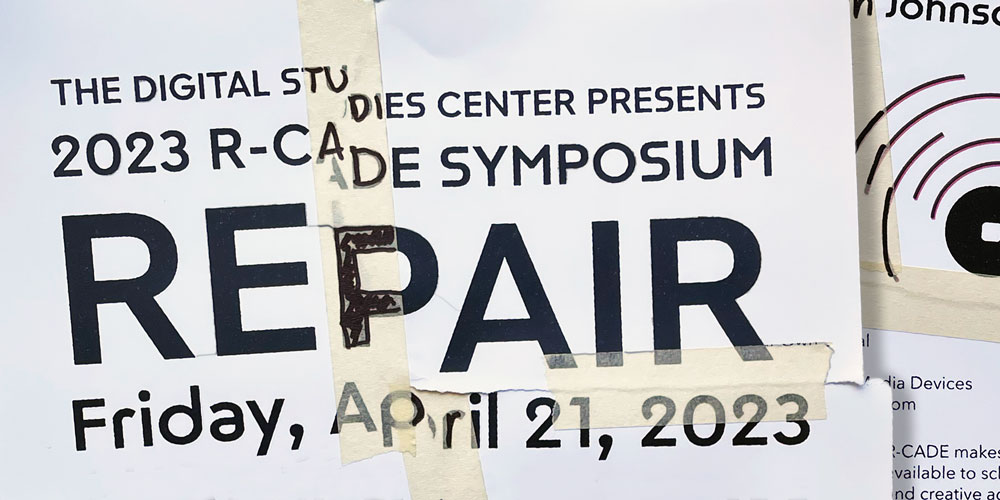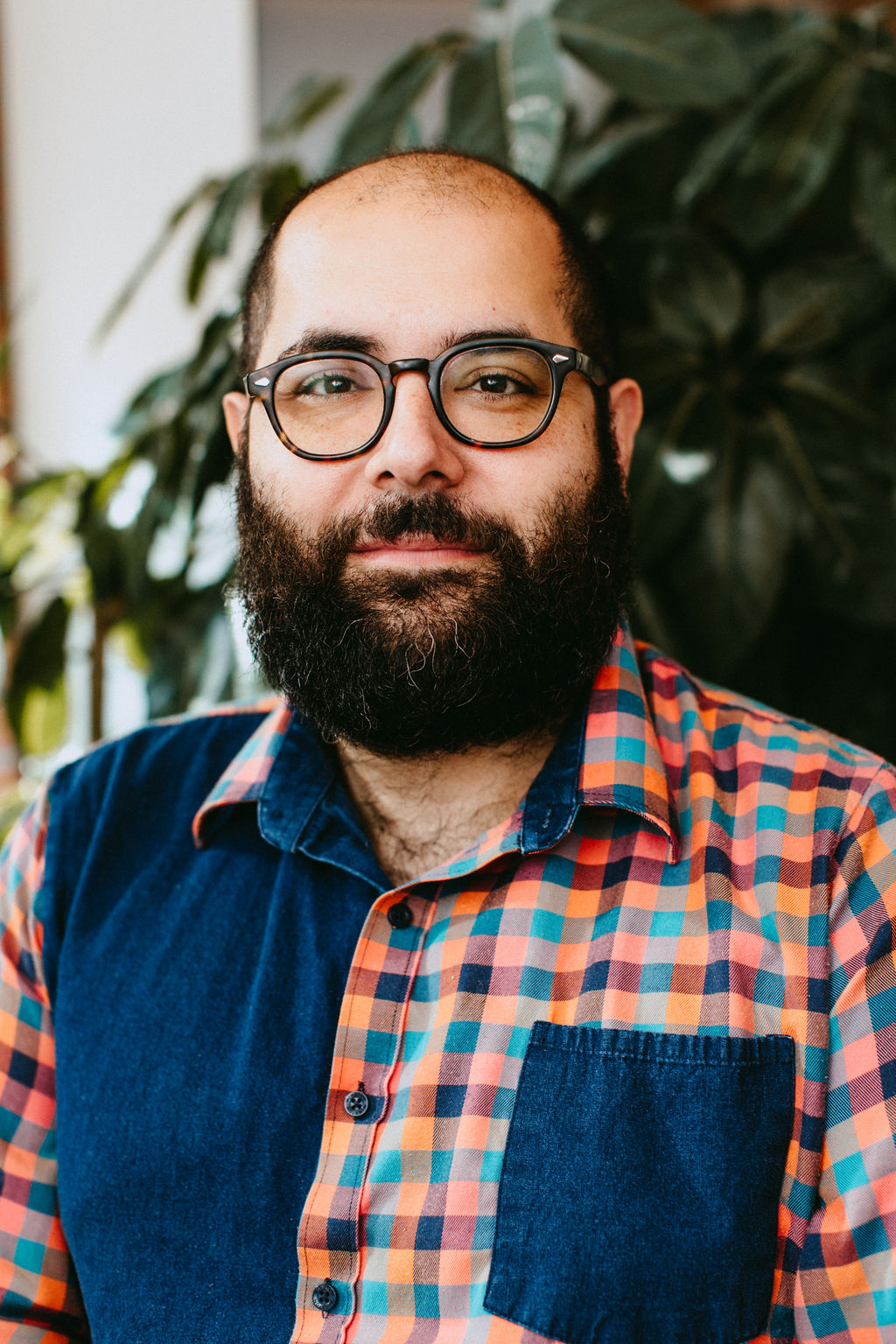
April 21, 2023
The symposium is free and open to the public.
Location: Digital Commons in Johnson Park https://goo.gl/maps/Fo4P13Q9nGK2
8:00-8:30
Registration and Breakfast
8:30 - 9:00
Welcoming Remarks
[Jim Brown, Director of DiSC]
9:00 - 11:00
Keynote: Run Your Own Social
[Darius Kazemi]
11:15 - 12:15
Reanimating the Dead: Bringing New Life to Obsolete and Defunct Media devices
[Rob Duarte, Florida State University REBOOT Laboratory]
REBOOT Laboratory is a studio/lab for thinking about waste, in its varied forms. Artists, designers, and engineers are invited to collaborate on hands-on research around waste materials, throwaway culture, and planned obsolescence. In this presentation, we will describe an ongoing project in which we hack and reconfigure obsolete digital fabrication devices. A recent example of this process of media archaeology is the transformation of an end-of-lifed laser cutter into a printmaking tool. Through this presentation, we will revisit the lessons learned: from experiments in circuits and code to the politics of repair to the invention of a strange printmaking technique that operates at the extreme ends of low-tech and high-tech. Afterward, we will work together to develop a collection of cyanotype prints produced using this novel process.
12:30 - 1:30
Lunch and DiSC Student Showcase
[Kaitlyn Rich, TJ Macpherson, Ronald Barr, Vrajesh Kunder, Wayne Reynolds, Matthew Brodsky, Kemy Rodriguez]
Student researchers at DiSC will share projects that address the symposium theme of repair, including a 3D printed typewriter from the early 1900s, a meditation on archives and disaster, and an examination of videogames that address repair in different ways.
1:45 - 2:30
Solar Composition: Solar-Powered Computers in the Writing Classroom
[Hannah Hopkins, University of Texas at Austin Digital Writing and Research Lab]
This presentation features a pilot project Hopkins is developing to build and run an undergraduate writing course on a solar-powered computer. Hopkins will discuss the origins of the project and its connections with other low-carbon research methods in rhetoric & writing studies and allied disciplines, the process of building the computer and solar infrastructure, and next steps for designing this course. During the presentation, Hopkins will also work with participants on experimenting with the UX design choices we need for building with solar infrastructure. Attendees will look at the ways that infrastructure (like solar) changes possibilities for design, and we'll play with tools for activating these possibilities.
2:45 - 3:30
'Six Impossible Things This Morning': Repairing the Unfinished Legacy of Infocom
[Daniel Johnson, Hesburgh Libraries’ Navari Family Center for Digital Scholarship, University of Notre Dame; Matthew Sisk, Lucy Family Institute for Data and Society, University of Notre Dame]
Taking inspiration from R-CADE’s original call in 2019 for “proposals that address the continuous, ongoing processes of repair, maintenance, and care required of contemporary systems and infrastructures,” this presentation will use the planned but canceled sequel to Infocom’s popular Hitchhiker’s Guide to the Galaxy text-adventure game as a basis for exploring Infocom’s interactive fiction system and its continuing legacy in modern culture. Little was known about Infocom’s would-be Hitchhiker’s sequel, Milliways: The Restaurant at the End of the Universe, until assets from a backup shared network drive from Infocom were shared to the Internet by Andy Baio in 2008. The rudimentary code uncovered by this reclamation will serve as a starting point for exploring the history, narrative strategies, technical limitations, and realia behind the Infocom experience. This digital forensics experiment will culminate with an attempt at the creative restoration of at least part of the code base and a look at the technical infrastructure to support it, offering insights about the maintenance and relevance of supposedly obsolete digital systems in the modern era.
3:45 - 5:30
Bird Box: Designing Cross-Species Repair
[Marcel O'Gorman, Jennifer Clary-Lemon, Chris Rogers, Bella Goudie, University of Waterloo]
This combined panel and workshop looks at infrastructures designed by humans to mitigate the loss of at-risk bird species. Presenters begin with an ephemeral digital object, a small wooden box made of barnboard containing a microcontroller, a passive infrared motion sensor, a speaker, and a rechargeable power source. This box was once at the heart of an installation project called Hirondelusia (https://hirondelusia.wordpress.com), designed to promote reflection on human attempts to mitigate the habitat loss of barn swallows (Hirundo rustica). Hirondelusia circuit bends a wooden structure erected to attract barn swallows by turning it into a structure to attract humans and teach them about species at risk. The musical bird box that once shifted between a classical piano piece and the twittering of barn swallows is broken. And this situation of repair prompts panelists to reflect on how infrastructure, digital and otherwise, mediates the relations between the human and more-than-human. The panelists will lead a speculative design workshop that invites participants to identify their “spark bird,” the bird that first made them notice birds, find an audio recording of its call, and imagine how this sound might be integrated into a “bird box” designed for the flourishing of this species.
